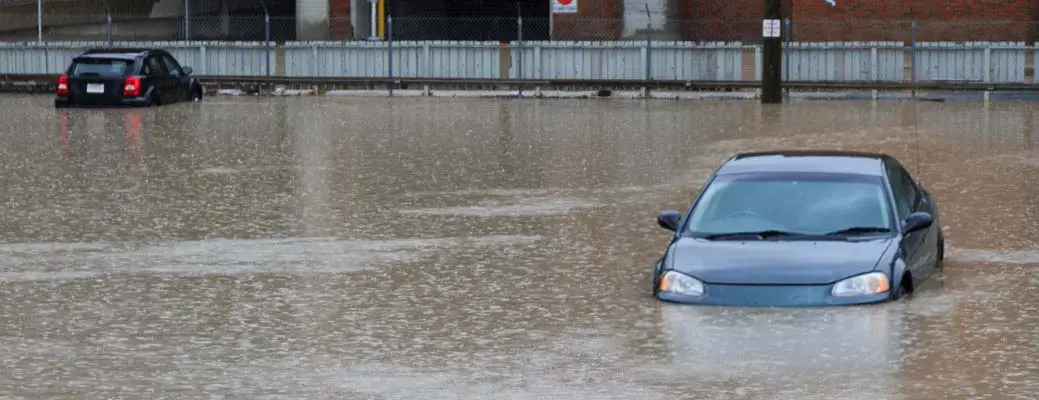Buyer Beware: Avoiding Flood Damaged Cars


With major storms (including the recent hurricanes) come an influx of flood-damaged cars to the market. If you are looking for a reasonably priced used car, a low sticker price may be inviting, but is likely not be telling the whole story. Even if you are hundreds of miles from the site of the flood, you want to be aware of the telltale signs of flood damage so you can avoid these vehicles. We’ve compiled a few tips to make spotting a flood-damaged vehicle easier.
Flood damage can wreak havoc on a vehicle in more ways than one. Everything from mechanical systems to electronics can be damaged during a flood, so it is important to look for signs that the car has been submerged in water.
When buying a used car, it is always a good idea to get a second opinion. Take the car to a trusted mechanic, who will lift the car and check the bottom of the vehicle for signs of corrosion. If the car has sat in salt water for very long, it will have signs of rust forming. Be sure the mechanic checks around doors, under the bumpers and on any of the outer rims that bear the brunt of most of the weather.
Each car has an assigned Vehicle Identification Number (VIN). Services like Carfax or Autotrader can tell you the car’s history based on the VIN. The report will contain accident information, whether the car has a salvage title, if the car has sustained flood damage, or where the car has come from. When purchasing a vehicle, it is always a good idea to check the information on the report to get a better understanding of the car’s history.
If the car you are looking at has reported flood damage (or a salvage title) it means that it has had reports of damage and has been deemed a risk by another insurance carrier. It’s likely difficult to know how extensive the damage could be, and what trouble it may cause down the road. Be wary about purchasing flood-damaged or vehicles with a salvage title, even if they seem like a “good deal” – they may have nagging issues that aren’t apparent on the car lot. It may be wise to steer clear and wait for a better deal down the road.
Looking for a new car? Contact your Farm Bureau agent for advice on safe and reliable vehicles. Your agent will be able to give you an auto insurance estimate and help you plan your monthly budget.